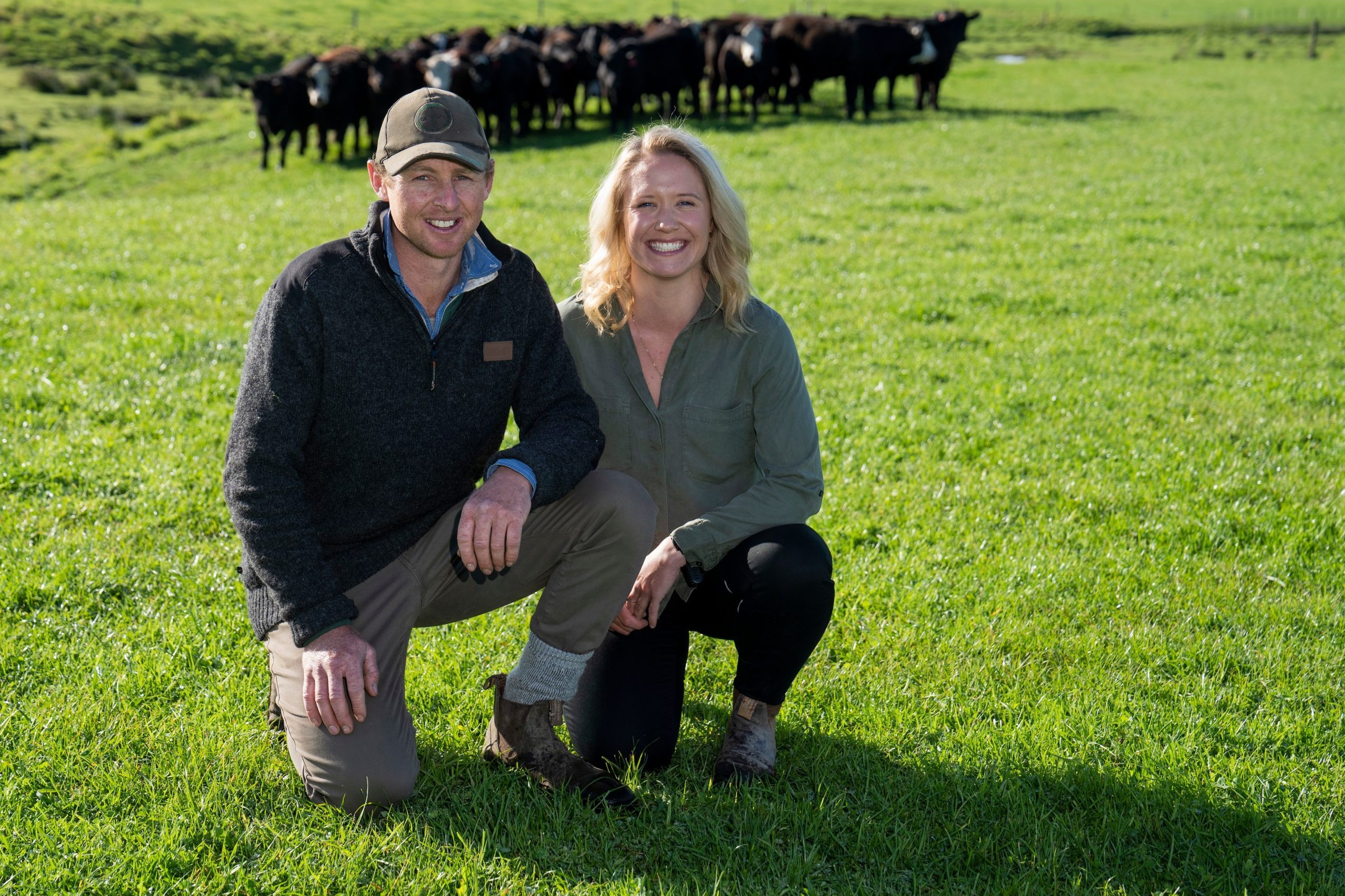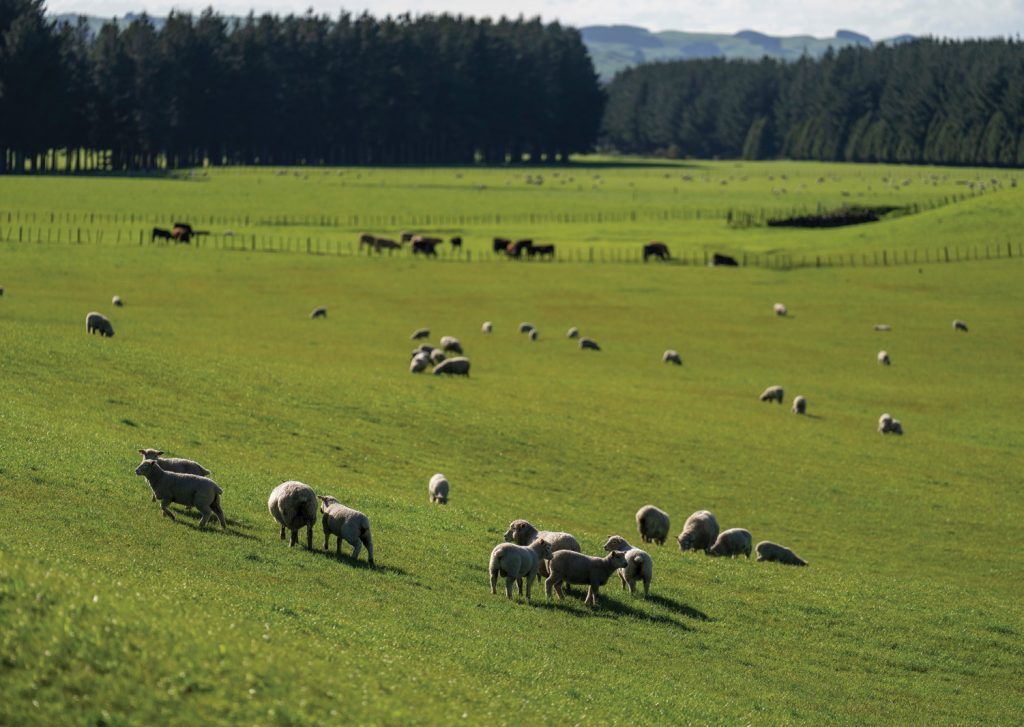Making of a great manager
Opportunities await for multi-skilled farm managers with the combination of practical farming experience and necessary analytical skills. Tony Leggett reports.

Opportunities await for multi-skilled farm managers with the combination of practical farming experience and necessary analytical skills. Tony Leggett reports.
A host of career opportunities await farm managers with skills beyond practical farming experience and a great dog team, Hawke’s Bay farm owner Mike Rittson-Thomas says. His Tikokino farm has been managed for the past three years by Hugh Abbiss, who is this year’s Silver Fern Farms Hawke’s Bay Farmer of the Year.
Abbiss has transformed Totara Hills Station in three years into a highly profitable livestock trading and cash cropping business, now generating more than $1600/ha net profit (before interest, tax, depreciation and amortisation).
Rittson-Thomas says Abbiss and his partner Sally Terry, a rural manager with ANZ, are great examples of a new level of manager with the combination of practical farming experience and analytical skills required for a modern farming business.
Abbiss took over as manager in July 2019 and Rittson-Thomas says he worked for him “on and off” for the first two years after he took over. “I was probably what Hugh didn’t want around in those first two years. But we had very few awkward moments in that time, which is a credit to Hugh and Sally and my wife Caroline.”
Over that time, they discussed various incentive options to reward Abbiss beyond his manager’s salary.

Rittson-Thomas had experience from serving on various boards, he had employed share milkers and helped out with employing managers at Mount View Station in Mangamahu Valley for several years.
“All we ever wanted here was a win-win. And we’ve gone round and round on it a lot, but now we have what we would call a win-win,” he says.
For Abbiss, having some form of incentive connected to the financial performance of the station appealed the most.
“After the first two years managing, our relationship with Mike was embedded and that time also allowed us to learn a lot about the property and how we wanted to do things, and get settled ourselves,” he says.
“The incentive discussions got awfully complicated at one point, and we just slashed and burned that to finally come down to a bonus structure based on the property’s profitability.”
A set of parameters is defined in his employment contract to ensure farm practices are sustainable.
Profit in the agreement is defined as trading surplus plus an adjustment for the current market value of livestock on hand at balance date.
Rittson-Thomas retains an agreed base level of profit plus depreciation value on plant and equipment and Abbiss receives a market-level salary as the reward for the management of the business. A share of the remaining profit is his bonus.
One of this year’s award judges, Gisborne farmer and Silver Fern Farms director Dan Jex-Blake urged other aspiring farm managers to look closely at the steps taken by the winners.
At last month’s field day on the station, he suggested having analytical skills would create new openings in their careers.
“It is really good to see a lot of young guys here. My call out to you is take a look at what these two winners do and my advice to you is if you think having a great team of dogs is going to get you a top manager’s job, then think again.
“Trust me, those days are over. As an employer and landowner, I want a Hugh and Sally. We need people who are multi-skilled,” he says.
Judges’ view
Totara Hills operates a farm business that is able to “thrive in difficult times”, says local farm consultant John Cannon.
The district is particularly known for its testing, dry summers, often for consecutive years.
“It’s the attention to detail and positive attitude to learn which is a real credit to these guys (Hugh Abbiss and Sally Terry). They understand the land they are on, its strengths and weaknesses, and they’ve built a farming system around the land,” Cannon says.
“They measure everything and evaluate it. This is a system and method of farming that is fit for future growth.”
One of this year’s award judges, Lee Matheson from Perrin Ag in Rotorua, says Hugh makes an extremely complicated business look easy because he is in control.
“Ultimately, you can only manage what you measure and those numbers give Hugh the confidence to make timely decisions,” Matheson says.
“He’s able to show incredible patience because he understands what the numbers are telling him. He knows what his farm is growing and what his stock are eating. He understands the markets, so when everyone else is rushing out to buy cattle, he’s saying okay I’m comfortable not to do that.”
Jex-Blake says putting that confidence into action on the farm is another standout quality of the winners.
“You can do numbers till you’re blue in the face, but you’ve actually got to execute it on the ground, and they’ve nailed that,” he says.
Reflecting on the victory in this year’s award, Sally Terry says the experience had been a mix of challenge, enlightenment and reward.
“Really early on in our own relationship we defined some goals about what we wanted to achieve as a couple. So, through the process of entering this competition, and reviewing what we’ve done in the past three years, it was a phenomenal experience to reflect back and realise what we’ve done together,” she says.
“We entered for feedback and we were probably hoping to get a couple of years of feedback for free! But it’s been a great experience, stressful at times, but we got there.”
Terry grew up on King Island, in Bass Strait between Tasmania and mainland Australia. She moved to New Zealand in 2013 to complete her Bachelor of Commerce in Agriculture at Lincoln University with help from a Future Leadership Scholarship, and she’s now an agri relationship manager at ANZ with clients in the Tararua region.
Analysis runs deep in the Abbiss DNA. Hugh also has the same degree as Sally. His parents Mike and Donna farm at Halcombe in Manawatu and were the region’s monitor farm owners in early 2000s.
- Read the full onfarm here.




